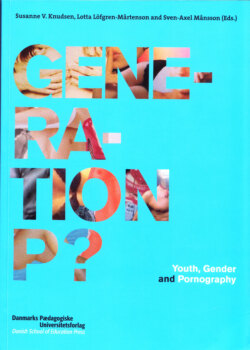Читать книгу Generation P? - Группа авторов - Страница 20
На сайте Литреса книга снята с продажи.
Scientia Sexualis
ОглавлениеIn his three-volume work The History of Sexuality. Will to Knowledge, Foucault starts from the familiar hypothesis that there was an increase in sexual repression during the bourgeois epoch (Foucault 1976). He does not consider this hypothesis to be incorrect, but rather in need of appreciable modification. Foucault wishes to get behind this hypothesis of repression and analyze the connections between power, sexuality and gender that create everyday pleasures and that give desire its cultural forms. Talk about gender and about sexuality has gradually become more qualified, nuanced and interwoven with power. In modern societies, interest in the sexual has gradually increased.
In modern society, there is a will to knowledge; we want detailed information about sexuality so as to develop our knowledge of sex and human sexuality. Pornography is part of that sexuality, and it is in pornography that we find information about the hidden, the forbidden and taboo. Maybe our eagerness to colonize and explore the territory of sexuality is the explanation for today’s great supply of pornography. Our fascination with the physical and the pleasurable therefore assumes different forms. Thus, the will to knowledge must be interpreted within the framework of a particular society and the rules of pleasure that constitute its normative means of control.
According to Foucault, however, speaking about pleasure outside or beyond power is a hopeless project. Pleasure, desire, power and coercion are woven together to form something we then call sexuality. Thus, it is difficult to separate one aspect from the other. Is rape only a matter of male aggression and not a matter of sexuality? And is pornography only a representation of male dominance? On the basis of Foucault’s ideas, we might say that it is probably a question of a sexuality in which power and pleasure have taken on socially (un)acceptable forms. In Foucault’s view, it is impossible to talk about pure sexuality.
The interplay between power, resistance and pleasure is extremely complicated. Sometimes pornography seems to have an impact on young people sexual practices and ideas, and sometimes these sexual practices are used in order to question pornography (Löfgren-Mårtenson & Månsson (2006). Foucault’s way of approaching issues about power and resistance leaves us in some sense in a moral vacuum. We find ourselves in a place beyond good and evil, although it is also possible to draw certain radically moral conclusions based on the line of reasoning he pursues.
Foucault was often quite clear in his analysis of human sexuality, but he also left many loose ends. What was his view on the role of psychoanalysis or on the sexual liberation of the 1960s and 1970s? How would Foucault have interpreted the rest of the story up to the present era and its mediaized sexuality?
